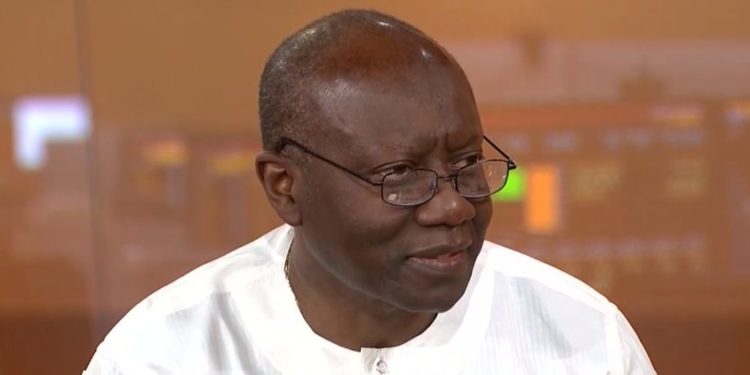Ghana: S&P rating still at CCC+ despite downgrade by Fitch, Moody’s
Credit rating of Ghana’s bonds by rating agency, Standard and Poor’s (S&P), still stands at “CCC+” with a negative outlook.
This is despite recent downgrades by Fitch Ratings and Moody’s from “CCC” to “CC” and “Caa1” to “Caa2” respectively.
The rating downgrade from “B-” to “CCC+” S&P noted, was reflective of Ghana’s limited commercial financing options and constrained external and fiscal buffers.
According to S&P, the Covid-19 pandemic and the conflict in Russia have magnified Ghana’s fiscal and external imbalances.
Additionally, demand for foreign currency has been driven higher by several factors, including nonresident outflows from domestic government bond markets, dividend payments to foreign investors and higher costs for refined petroleum products.
The nation has also been affected by a lack of access to Eurobond markets, the agency added.
Moody’s downgrades Ghana’s rating to Caa2
Moody’s Investors Service on September 30, 2022, downgraded the Government of Ghana’s long-term issuer and senior unsecured debt ratings to Caa2 from Caa1 and placed the ratings on review for downgrade. Moody’s also downgraded the senior unsecured MTN programme ratings to (P)Caa2 on review for downgrade from (P)Caa1.
The rating downgrade to Caa2 reflects the recent macroeconomic deterioration, further heightening the government’s liquidity and debt sustainability difficulties and increasing the risk of default.
Despite Ghana’s tightening of monetary policy in response to the global price shock, inflation continues to rise from high levels and the currency has been under very significant pressure. Combined, a sharp rise in interest rates, high inflation and a rapidly weakening currency exacerbate the government’s debt challenges.
Without external support, the government’s policy levers to arrest a worsening macroeconomic backdrop and heavier debt burden are extremely limited; the government’s small revenue base, largely and increasingly absorbed by interest payments, further intensifies the policy dilemma between competing objectives, including servicing debt while meeting essential social needs. As a result, the risk of an eventual default has increased.
The initiation of the review for downgrade is prompted by the ongoing negotiations between the government and the IMF over a funding programme that may include a condition for debt restructuring to ensure debt sustainability. Such a restructuring would likely be considered a distressed exchange and thereby a default under the rating agency’s definition.
The review will evaluate the likelihood of a debt restructuring being a prerequisite to secure sufficient and durable financing from official sources to avert a fiscal and balance of payments crisis that is already unfolding.
Concurrent to the rating downgrade, Moody’s also downgraded Ghana’s bond enhanced by a partial guarantee from the International Development Association (IDA, Aaa stable) to Caa1 from B3, reflecting a blended expected loss consistent with a one-notch uplift on the issuer rating. The rating has however been placed on review for downgrade given the review initiated on all unsecured debt ratings of the government.
Fitch further downgrades Ghana from ‘CCC’ to ‘CC’
Ghana last month suffered another credit rating downgrade from Fitch Ratings.
In its rating action on the Ghanaian economy, Fitch Ratings downgraded the country’s Long Term Local and Foreign Currency Issuer Default Ratings (creditworthiness) to CC from the previous rating of CCC.
The new downgrade further deepened the junk status of the country’s local and foreign bonds.
According to Fitch, its new credit rating action reflects the increased likelihood that Ghana will pursue a debt restructuring given mounting financing stress with surging interest costs on domestic debt and a prolonged lack of access to the eurobond markets.
“There is a high likelihood that the IMF support programme currently being negotiated will require some form of debt treatment due to the climbing interest costs and structurally low revenue as a percentage of GDP.
“We believe this will be in the form of a debt exchange and will qualify as a distressed debt exchange under our criteria. The government has not confirmed or denied press reports that Ghana is preparing to negotiate a restructuring. Interest costs on external debt are lower than for domestic debt and near-term external debt amortisations appear manageable.
“However, we believe there could be an incentive to spread a debt restructuring burden across domestic and external creditors and therefore do not have a strong basis to differentiate between Foreign- and Local-Currency ratings at this time,” Fitch said.
Other reasons assigned for the downgrade by Fitch include high debt service, continued reserve pressure, pending IMF programme, limited space for fiscal consolidation among others.








